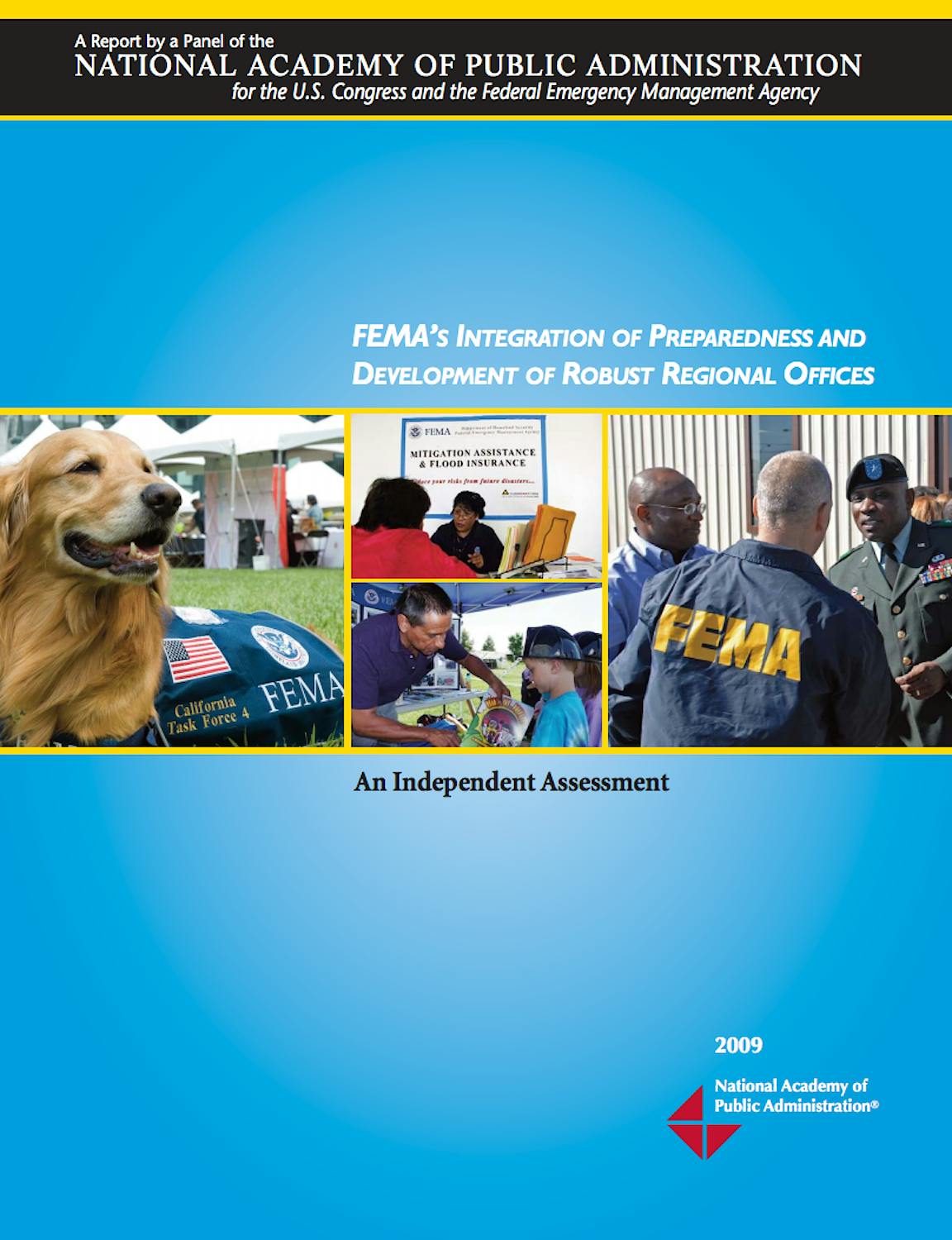
FEMA's Integration of Preparedness and Development of Robust Regional Offices
In October 2006, Congress enacted major legislation to reform the function and organization of the Federal Emergency Management Agency (FEMA) in response to the recognized failures in preparation for and response to Hurricane Katrina. The Post-Katrina Emergency Management Reform Act of 2006 (PKEMRA) focused national preparedness responsibilities within FEMA and directed additional resources and responsibilities to FEMA's ten regional offices. Directed by Congress, in October 2008 a National Academy Panel began an independent assessment of FEMA's integration of preparedness functions and progress in development of robust regional offices.
Click the button below to view the View Study Report.
View ReportKey Findings
Over the past three years, FEMA has taken significant steps in an effort to integrate preparedness and develop more robust regional offices. These efforts, undertaken by both the previous and current Administrations, are documented throughout this report and should be recognized and applauded. However, FEMA has yet to define specific goals and outcomes that would permit it, Congress or the public to determine when preparedness has been fully integrated into all aspects of FEMA’s work and whether the development and ongoing operation of robust regional offices has been achieved. In the absence of well-defined, measurable outcome indicators, the National Academy Panel relied upon the assessments of FEMA leaders and staff, documentation provided by FEMA, and a review of secondary sources material to inform its findings and recommendations.
Recommendations
Based upon this evidence, the Panel has concluded that, while progress has been made: (1) preparedness is not fully integrated across FEMA, (2) FEMA’s regional offices do not yet have the capacity required to ensure the nation is fully prepared, (3) stakeholders are not yet full partners with FEMA in national preparedness, and (4) FEMA has ineffective internal business practices, particularly with regard to human resource management. The Panel made seven recommendations for FEMA:
- Establish a cross-organizational process, with participation from internal and external stakeholders, to develop a shared understanding of preparedness integration;
- Establish a robust set of outcome metrics and standards for preparedness integration, as well as a system to monitor and evaluate progress on an ongoing basis;
- Work to eliminate organizational barriers that are adversely impacting the full integration of preparedness across the agency;
- Continue to build regional office capacity and monitor implementation consistent with the Administrator’s recent policy guidance;
- Undertake steps to improve the ongoing working relationship between headquarters and the regions in accord with Panel-identified principles;
- Take steps to improve stakeholder engagement and relationships at all levels in accord with Panel-identified principles; and
- Strengthen internal business practices, especially in the area of human capital planning.
